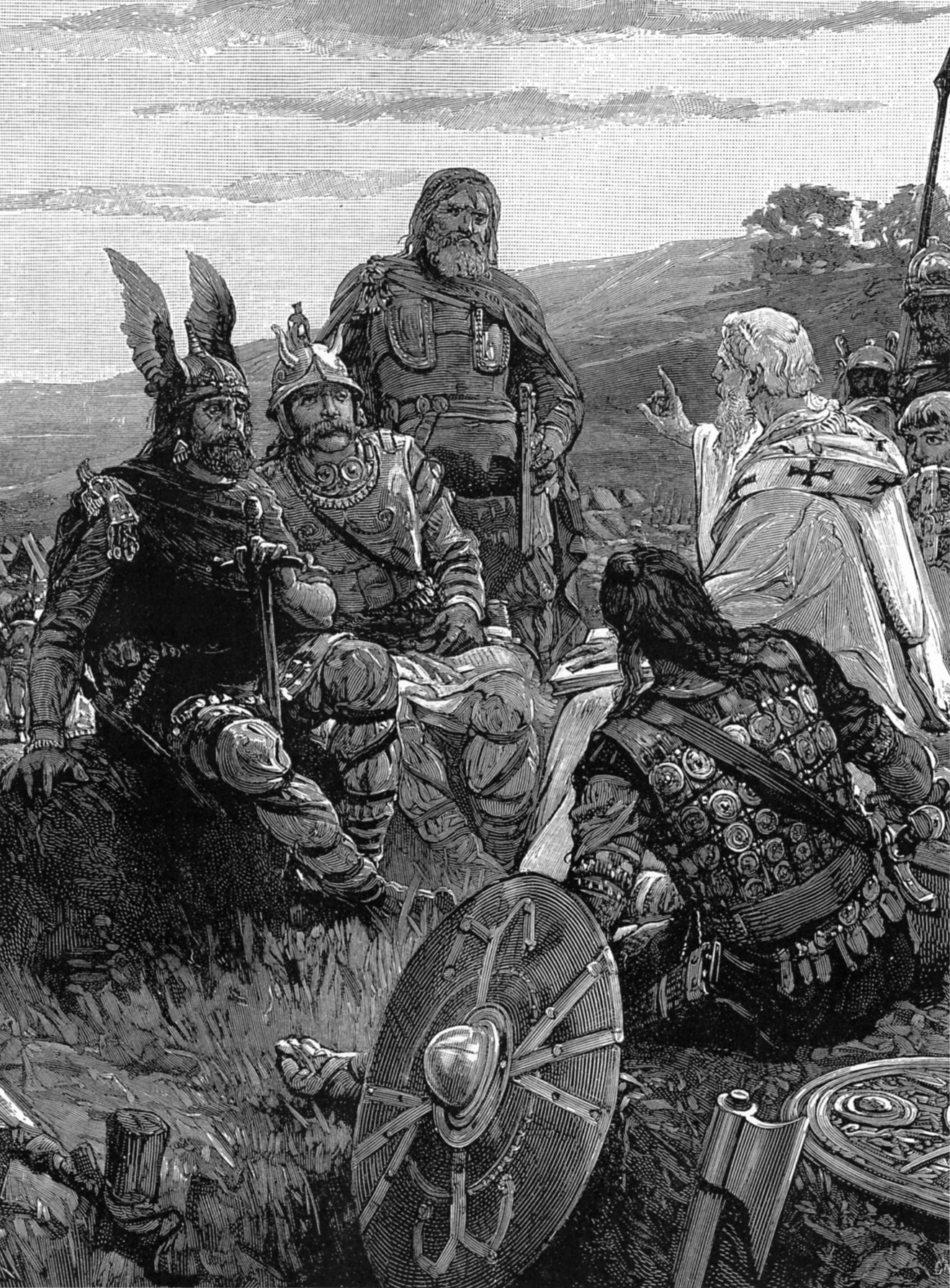Arianism is an anti-trinitarian Christian heresy of the 4th century and is not to be confused with Natzi’s Aryanism of the 20th century.
Arius (250 or 256-336) was the Presbyter from Alexandria Egypt. His teachings on the nature of the Godhead were not standard Trinitarian. None of his writing have survived as they were ordered burned. The only thing we have of what he might have been teaching is what is in the writings of those who disputed against him. Many believe that he was unjustly accused, and was caught up in the infighting caused by the Empire’s need for a standardized faith.
The servicing sources say that Arius’ Scriptural stance was in,
Arius insisted that the Father’s Divinity was greater than the Son’s and that the Son was under God the Father, and not co-equal or co-eternal with Him.
He was exiled to Illyricum after the Council of Nicaea.
“In addition, if any writing composed by Arius should be found, it should be handed over to the flames, so that not only will the wickedness of his teaching be obliterated, but nothing will be left even to remind anyone of him. And I hereby make a public order, that if someone should be discovered to have hidden a writing composed by Arius, and not to have immediately brought it forward and destroyed it by fire, his penalty shall be death. As soon as he is discovered in this offense, he shall be submitted for capital punishment…..”
— Edict by Emperor Constantine against the Arians
Arius reformulated his Christology to downplay some of his more problematic ideas, (if he ever really had them) and was on his way to be restored when he died.
Ulphilas
 However, his student Ulphilas the missionary to the Goths was very much anti-trinitarian. His teaching caused a rift in the Church between the Arians and the Orthodox or Catholics that lasted till the last king of the Lombards was put down.
However, his student Ulphilas the missionary to the Goths was very much anti-trinitarian. His teaching caused a rift in the Church between the Arians and the Orthodox or Catholics that lasted till the last king of the Lombards was put down.
Ulphilas/Ulfilas (ca 311-383) the bishop and apostle of the Goths was an Arian. He translated the Scripture into the German or Teutonic language. However, he did suppress the four books of Kings and Chronicles which he thought, “might tend to irritate the fierce and sanguinary spirit of the Barbarians.” Gibbons Vol 4 chapter 37 Part 2.
The Creed of Ulphilas
God the Father (“unbegotten”) from God the Son (“only-begotten”), who was begotten before time and who created the world, and the Holy Spirit, proceeding from the Father and the Son:
I, Ulfila, bishop and confessor, have always so believed, and in this, the one true faith, I make the journey to my Lord; I believe in one God the Father, the only unbegotten and invisible, and in his only-begotten son, our Lord and God, the designer and maker of all creation, having none other like him (so that one alone among all beings is God the Father, who is also the God of our God); and in one Holy Spirit, the illuminating and sanctifying power, as Christ said after his resurrection to his apostles: “And behold, I send the promise of my Father upon you; but tarry ye in the city of Jerusalem, until ye be clothed with power from on high” (Luke 24:49) and again “But ye shall receive power, when the Holy Ghost is come upon you” (Acts 1:8); being neither God (the Father) nor our God (Christ), but the minister of Christ … subject and obedient in all things to the Son; and the Son, subject and obedient in all things to God who is his Father … (whom) he ordained in the Holy Spirit through his Christ.
Compare with The Apostles’ Creed
I believe in God, the Father Almighty,
the Maker of heaven and earth,
and in Jesus Christ, His only Son, our Lord:
Who was conceived by the Holy Ghost,
born of the virgin Mary,
suffered under Pontius Pilate,
was crucified, dead, and buried;
He descended into hell.
The third day He arose again from the dead;
He ascended into heaven,
and sitteth on the right hand of God the Father Almighty;
from thence he shall come to judge the quick and the dead.
I believe in the Holy Ghost;
the holy catholic church;
the communion of saints;
the forgiveness of sins;
the resurrection of the body;
and the life everlasting.
Amen.
The real problem between the Orthodox and Arians was that Orthodox Christianity had mixed their religion with the Greco-Roman gods including some Persian ideas of Mythra, merging Christ with the former sun god. The Arians instead had mixed their faith with that of the Norse gods, merging Christ with Thor the god of war.
